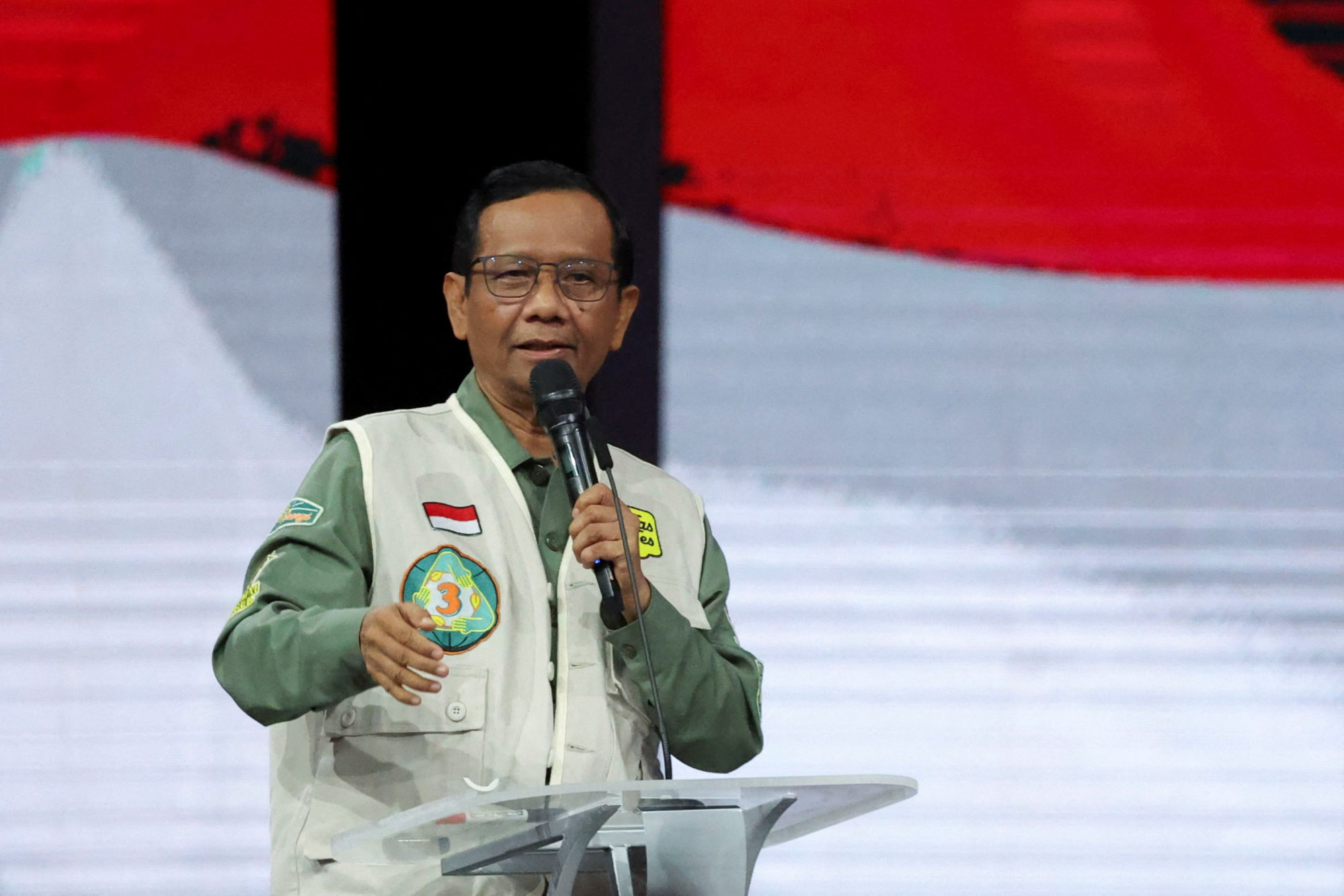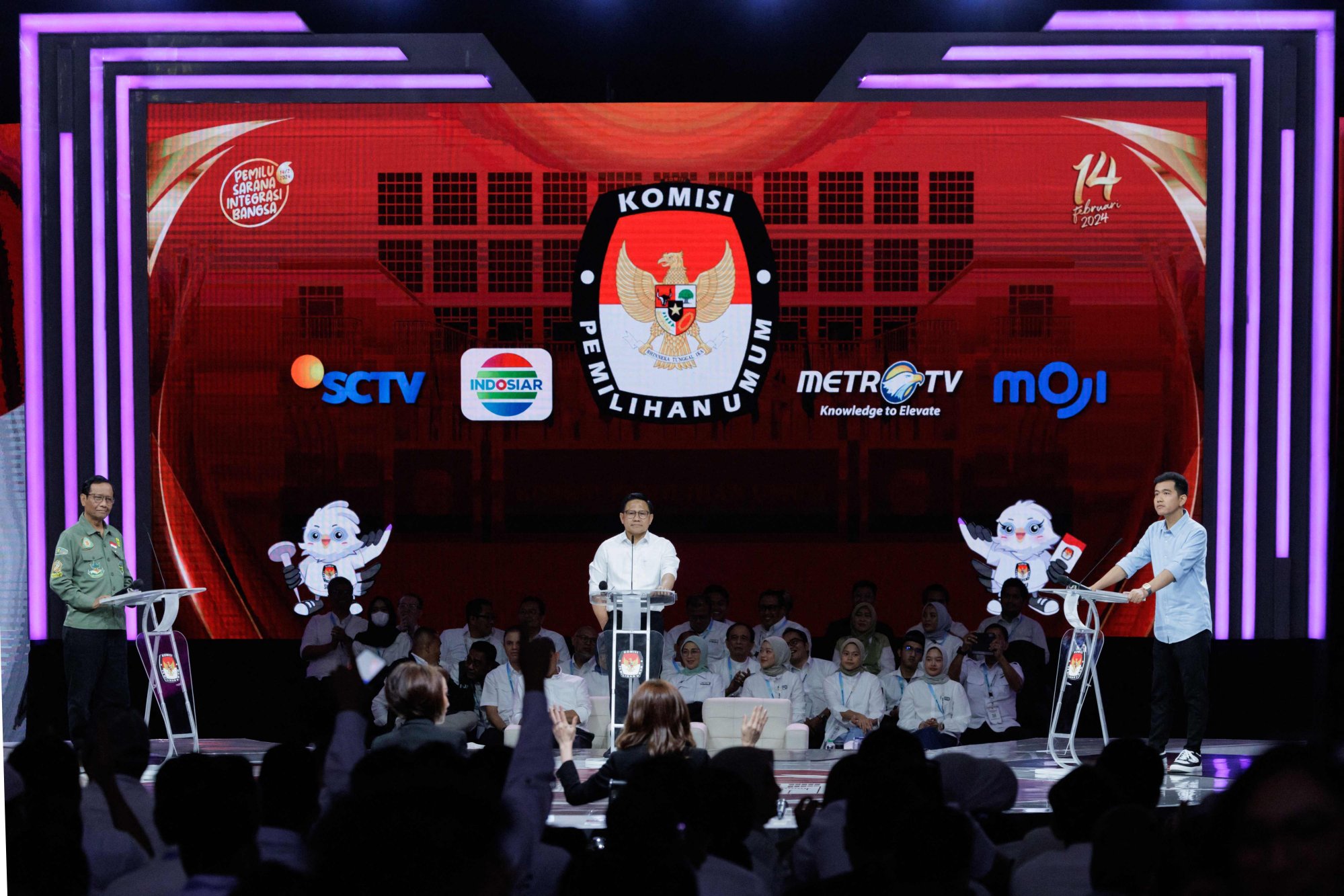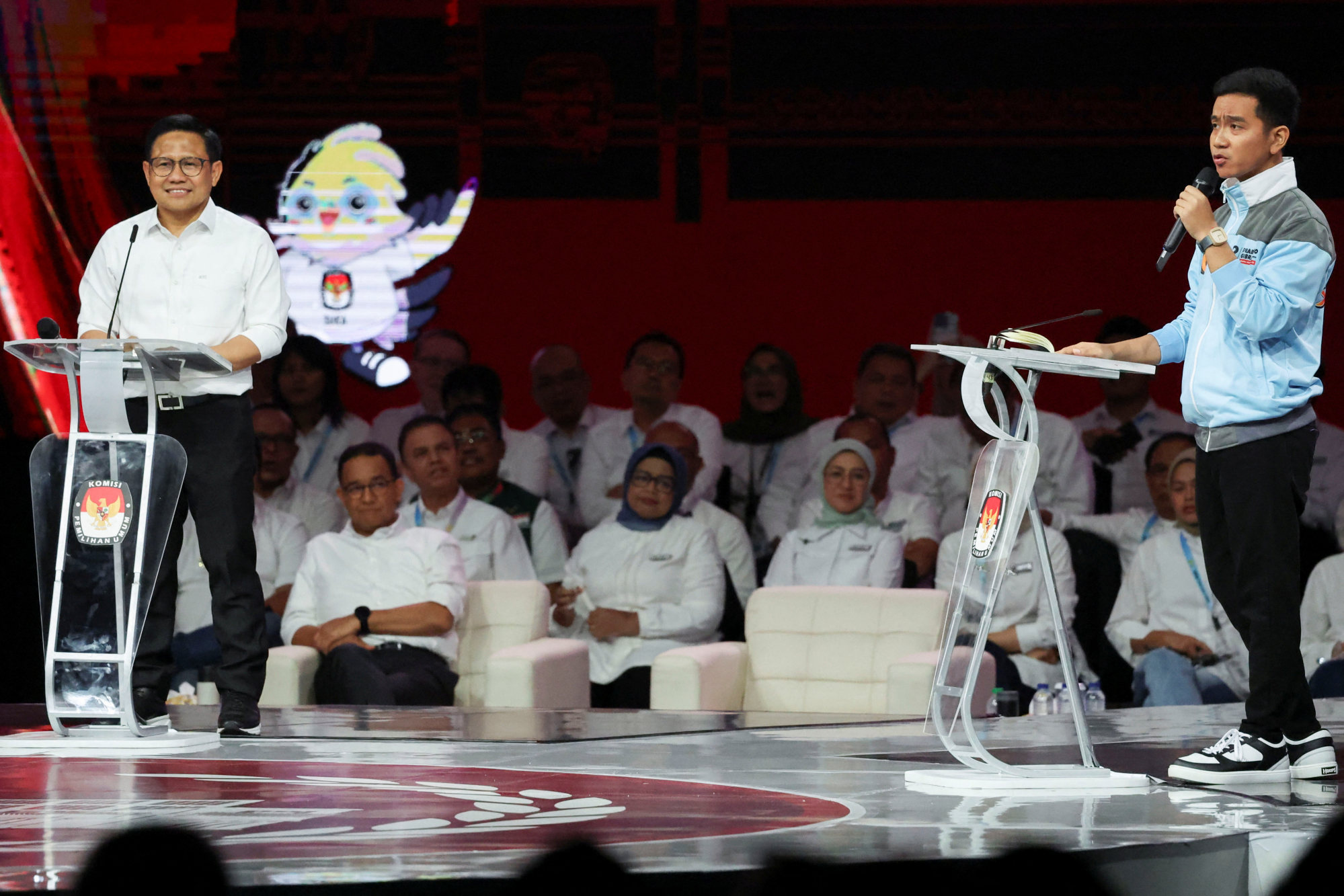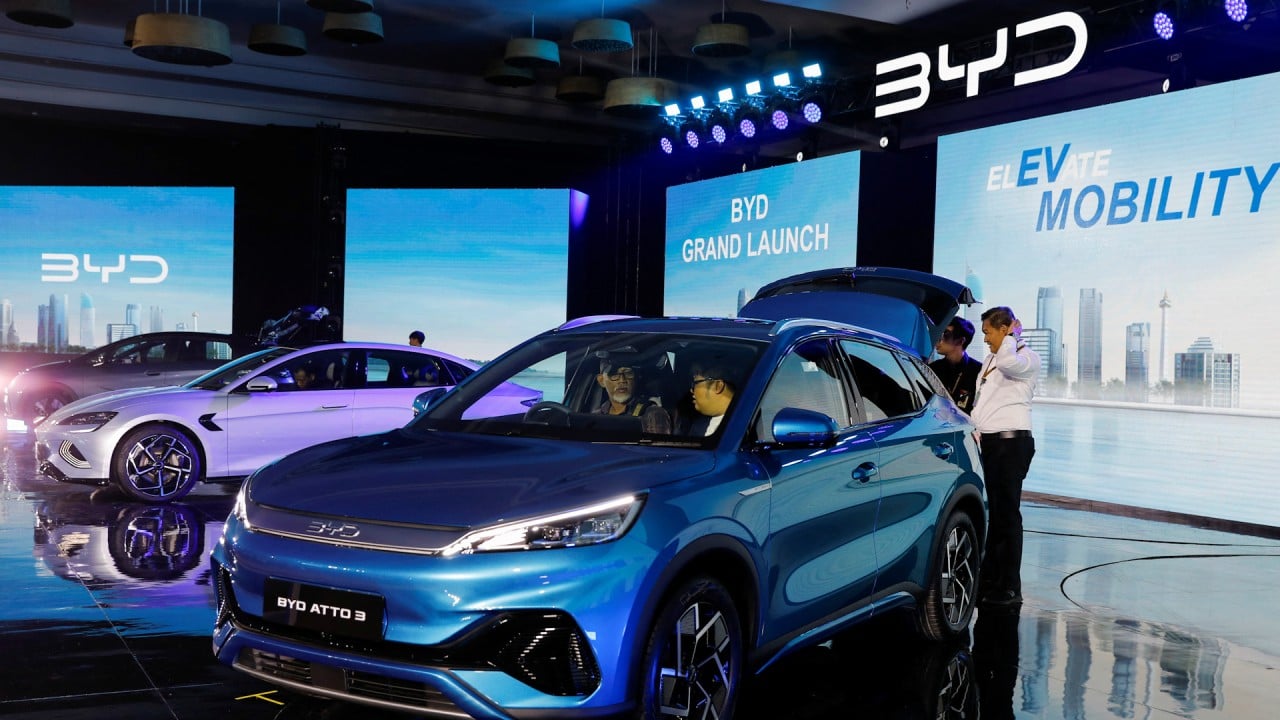Indonesia election 2024: Gibran resorts to ‘gotcha questions’, jargon in VP debate in bid to trip up rivals
[ad_1]
The comment was a reference to Prabowo’s allegedly massive land holdings. Indonesian environmental group Walhi last week claimed that Prabowo owns nearly 500,000 hectares of land through 17 businesses in sectors including mining, forestry, and palm oil plantations. Prabowo has long denied the accusation.
Gibran, the mayor of Surakarta in Central Java, said he would continue his father’s downstreaming policy and expand it to include “agricultural, maritime, and digital” products. The initiative bans the exports of raw critical minerals such as nickel and bauxite to encourage their processing within the country. He also vowed to boost the welfare of villages and farmers by, for example, making it easier for them to buy fertilisers.

Coordinating Minister of Politics, Legal, and Security Affairs Mohammad Mahfud, who is running alongside former Central Java governor Ganjar Pranowo on the ticket of the ruling Indonesian Democratic Party of Struggle, criticised Widodo’s food estate initiative as a “failed and environmentally destructive programme”.
The programme, helmed by Prabowo, was launched in 2020 to boost Indonesia’s food self-sufficiency. But critics say it has failed to increase the production of staple crops like rice, and has instead caused environmental damage and stoked social conflict.
Gibran defended the project and accused Mahfud and Muhaimin of “using fearmongering [tactics]” by claiming the programme had failed.
In Indonesia VP debate, Gibran spars with rivals over new capital, economic plans
In Indonesia VP debate, Gibran spars with rivals over new capital, economic plans
Throughout the night, Gibran used foreign jargon and abbreviations while questioning his fellow candidates, a tactic observers said he had employed successfully in the first vice-presidential face-off to befuddle his older rivals. However, Sunday’s debate included a new rule requiring such terms to be defined before a candidate had to respond.
That, however, did not deter Gibran, who asked Mahfud – also a professor of constitutional law – a question on strategies to counter “greenflation”.
When reminded to explain the term, Gibran said: “I’m not going to explain that term to him, because he is a professor. Greenflation is green inflation, as simple as that.”
Mahfud replied that he would focus on issuing the right policies that would support Indonesia’s green economy.
Gibran did not let up, saying, “I am still searching for your answer. I asked you about green inflation, but you just explained the green economy.”
He went on to explain, “Green inflation was the reason why there were yellow jacket protests in France. We can’t let this happen in Indonesia. We need to be careful in our transition to green energy, we shouldn’t let the people pay the costly price of research and development [for the renewable energy transition].”
France’s yellow jacket protests in 2018 were in response to an increase in taxes for diesel and petrol to reduce fossil-fuel consumption. However, analysts say the protests were also caused by rising economic inequality, the high cost of living, and a lack of adequate taxes on the wealthy.

Mahfud dismissed Gibran’s answer as “nonsense”, adding that “there’s no point in answering”.
Gibran later teased Mahfud by asking him if “he’s mad at me for asking him difficult questions”.
Ian Wilson, senior lecturer in Indonesian politics at Australia’s Murdoch University, said Gibran “stuck to a well-rehearsed script outlining more of the same policy-wise, plus more attempts at gotcha questions and mirroring his running mate by being condescending.”
Wilson noted that “Mahfud appeared more comfortable and better prepared” than the previous debate, but did not think there was “a real stand-out, in so far as a performance that will sway voters already sympathetic to a candidate”.

Gibran later probed Muhaimin on his knowledge of lithium iron phosphate batteries (LFP), a type of battery used in electric vehicles that do not need nickel.
“This is a discussion, where we are talking about policies and not trying to guess abbreviations. We need to have ethics in everything, including in natural resource production. We need to have a balance between humans and nature, so that our development is sustainable,” Muhaimin said.
Gibran claimed instead that Muhaimin’s team preferred to promote China-made EV batteries than Indonesian ones.
“Your campaign team often talks about LFP, but you, their vice-presidential candidate, do not understand it. Your campaign team claims that Tesla does not use nickel, that is a public lie. If you claim otherwise, then you’re promoting Chinese products,” Gibran said.
Ember, a UK-based energy think tank, estimated that China produced 77 per cent of the world’s EV batteries in 2022, underlining China’s domination in the global EV supply chain. Chinese companies also operate half of the world’s lithium refining capacity for batteries, according to Washington-based non-profit Institute of Energy Research. Most nickel smelters in Indonesia are owned by Chinese companies, which have helped develop Indonesia’s nascent nickel processing industry following the downstreaming policy’s ban on nickel ore exports in 2020.
On X, formerly known as Twitter, voters questioned Gibran’s debate tactics, with user Nabiyla Risfa Izzati, a labour law lecturer at the Gadjah Mada University in Yogyakarta, branding them as “unnatural and cringe”. Another user, Margianta SJD, said “Gibran tried so hard to be savage, but instead he showed us how unworthy he is of power”.
Erasmus Napitupulu, executive director at the Jakarta-based Institute for Criminal Justice Reform, said on X that he respected Mahfud’s performance in the debate.
“Mahfud was firm, he did not want to answer trick questions. He knew, whatever his answers, Gibran’s goal was to humiliate him, not to test his [knowledge on the topics].”
The Prabowo-Gibran ticket has shown a substantial lead in recent surveys, polling just below 50 per cent, while Anies-Muhaimin and Ganjar-Mahfud remain in a tight race for second place. If no single candidate obtains at least 50 per cent of the vote on February 14, the first- and second-place finishers will face a run-off election on June 26.
[ad_2]
Source link


